Mina’s Child imagines a second generation springing from the “heroes”‘ in Bram Stoker’s Dracula. In 1921, Mina and Jonathan Harker’s daughter, Abree, a student at King’s College, London, starts to question the extraordinary adventures her parents claim to have experienced in England and the Carpathians. Middle-aged Jonathan Harker is haunted by nightmares that Abree assumes to be about her brother, Quincey, killed in the Great War. As the Harkers follow the thread of their unease back to its source, they are haunted by memories of Lucy Westenra, fiancée to Arthur Holmwood, and the manner of Lucy’s death. Having lost her brother, Quincey, in the Great War, Abree refuses to believe in a clear dividing line between good and evil. Abree suspects her parents’ tales of glory hide a profound sense of guilt, particularly about the unexplained death of their friend, Lucy Westenra. The Harkers’ maid, Jenny, it transpires, has reasons of her own to worry about the chaos in her employer’s household. She is carrying Jonathan’s child, but Harker plans to evade all such responsibilities. Jenny, suddenly unleashed as a destructive force against the household, decides to make the Harkers face their hypocrisy.
“Paul Butler has turned the Dracula myth inside out, exposing the convenient lies of foreign evil and women’s demonic sexuality. A compelling look at how false stories become our own undoing—and just a fantastic read.”
—Leslie Vryenhoek, author of We All Will Be Received
“In Mina’s Child, Paul Butler takes a fresh look at the familiar story of Bram Stoker’s Dracula, pulling the characters into the twentieth century and re-examining the tale under the critical gaze of a new generation. Through the eyes of Abree Harker we see the old story in a new and harsher light, uncovering a tale that is, in some ways, perhaps more chilling than gothic horror. Readers will find it hard to forget Mina’s Child
—Trudy Morgan Cole, author of A Roll of the Bones
powered by Crowdcast
But where was the prince in the title? Abree wondered. He had introduced himself merely with a name. It would have showed ill-breeding to do otherwise, of course, at least in England. But it would force her to call him a mere “mister” or “professor,” which might prove an embarrassment later.
“Please,” she said, “Professor Florescu”—she gave a nervous smile and turned to her mother—“this is my mother, Mrs. Jonathan Harker. I am Abree Harker.”
He seemed delighted for a moment, as though the names—such plain names compared to his own—had sounded like the most sublime poetry in his ears.
“Mrs. Harker,” he said gratefully, it seemed, “and Miss Harker. I am so delighted to make your acquaintance.”
Abree could not think of anything to say. Mother seemed likewise lost for words, and Professor Florescu looked on them both, smiling and patient, in no special hurry either to break off conversation or to offer anything that might serve for small talk. Abree thought of his title again and of his origins.
“You are, I believe, from Bulgaria, Professor?” It was a slightly dangerous subject. Bulgaria had been an enemy three years ago. But the country was far enough away from the English map, Abree thought, for the detail to be at least half forgotten, and Mother was never parochial when it came to such things. In 1914, both her parents had been enraged at the looters and vandals who’d ransacked London shops owned by Germans.
“I was born a Hungarian, Miss Harker, from the provinceof Wallachia. But, unlike those of Great Britain, our borders move often. So it can be confusing to us as well as to those of other countries. Now I am a Romanian.”
“What a beautiful country you belong to, Professor Florescu,” said Mother breathlessly. Abree guessed her to be in the throes of a powerful emotion, a memory perhaps. A glance to her side revealed that her eyes had misted over.
Professor Florescu’s face showed smiling appreciation but also curiosity. Abree thought of a handsome dark animal, an otter perhaps, wanting to burrow through the water after a shining fish but cautious lest some unseen danger lurk beneath the depths.
Mother seemed lost, oblivious to the fact that her statement required some explanation. Abree supplied it for her.
“My mother and father, Professor, travelled in the region long before the war.”
“Really?” Now his brown eyes widened in admiration as well as surprise. Yet, there was something else in his expression, something she’d first noticed when he heard their names. Some of the surprise, at least, was feigned. Abree couldn’t swear to this, and was not certain where the instinct came from, except that the response was a little too polished, a touch too steady.
“Yes, Professor Florescu,” said Mother, her voice still husky. “It was just over thirty years ago, quite the most memorable journey of our lives.”
“A honeymoon perhaps?” he asked.
“Oh no,” she said rather too quickly, “but an experience nevertheless, one we can never forget.”
He looked at her, smiling steadily, waiting for more. But Mother was clearly not going to supply it. “And what brings you to London, Mr. Florescu? You are a professor, I gather?”
“I have the privilege of teaching history here, Mrs. Harker. I find there is so much energy of enquiry in young minds today. We have an extraordinary opportunity.”
Abree felt a nudge and wondered whether Mother wanted them to move on. But a glance revealed that she had merely turned to Abree, a sad, sentimental smile upon her face. “You are so right, Mr. Florescu,” said Mother. “We have such hope in our children, and there is such a responsibility placed upon their shoulders.”
It occurred to Abree that Professor Florecsu must be older than she had thought him. He still did not look more than thirty-five, but the ease with which he and her mother had fallen into the nuance of codes and hidden meanings about young people suggested they recognized each other as generational peers. She searched for lines upon his face. His expression reflected her mother’s sense of transience and loss, and there were indeed grooves leading down from the sides of his nose to the corners of his mouth, and spiders’ web networks of lines radiating from his eyes, especially when he smiled plaintively as now.
It is often the case with men, Abree thought, that when they remain slim and keep their hair, they seem to retain their youth and vigour for decades. The qualities that delineate women’s youth are, by contrast, too narrow to survive the years. This idea, real enough and true enough, made Abree despise herself. These were her parents’ generation’s judgments, not hers, and yet they were in her, like tumours. The pantomime horse came back into her mind. No one had put her in the back end of the costume. She had done it to herself. She was an imposter belonging to nineteenth-century complacency and inaction. She was woman preserved under glass. It was a mistake that she was living in this age. This age was a time of change. Change required courage, not just the kind of courage to make Father’s eyebrow arch as she announced she would go to a decidedly non-militant lecture on women’s suffrage, but something much more, something that required shattering the glass that surrounded her. Women just like her, daughters of solicitors or doctors, had nursed wounded soldiers and influenza patients. They chained themselves to the railings of public buildings and threw themselves before the King’s horse while Abree was, for the most part, meekly waiting until she was thirty, when she might legally cast her vote.
Professor Florescu and Mother continued to talk while Abree drifted into her own thoughts. She felt like blaming all these failures on what had happened to Quincey, but she knew that wasn’t it. Others had lost brothers, and husbands, and sons. So what was wrong with her? Mother glanced at her and smiled. She and Professor Florescu thought they were talking about her, but they weren’t, not really. They were talking about people, men and women, who took their responsibilities seriously. They were talking about people like Helen.
At last, Mr. Florescu bowed again. Mother, ever resourceful, carried Father’s card and often issued invitations on his behalf. She pressed this card into Professor Florescu’s hand almost fondly. He bowed to them both again, looking delighted with his new acquaintanceship. Abree managed a smile, but she was worried. Mother seemed blind to any similarity between the Wallachian professor and her dead son. But perhaps Father would see it, and the door had been opened to the possibility, perhaps even a likelihood, of a meeting.
Mother was strangely silent when they returned home. Abree closed the front door as Mother took off her gloves. Only when Abree turned did she notice that Mother’s fingers were trembling as she returned the garden gate key to its hook.
Jenny had appeared pale-cheeked and expressionless at the sound of the front door. She took Mother’s scarf.
“We’ll have tea in the drawing room, please,” Mother told her.
Jenny gave a swift curtsey and ghosted off in the direction of the kitchen.
“You’ll join me, won’t you?” Mother asked Abree. Abree could think of no reason not to. Obviously, Keats and Whitman could wait a little longer. Perhaps they would wait forever.
In a few moments Abree was circling the drawing room, catching sight of the photo-less mantelpiece again, hearing the hollow tock of the grandfather clock. Mother sat in the centre of the settee. Abree took the chair opposite.
“A charming young man, didn’t you think so?” Mother said. “Thank you for introducing him to me.”
“I didn’t know him before today,” Abree said, “but it seemed silly to walk by without saying hello, considering the circumstances.”
Mother smiled complacency. “You girls, you and Helen, you seem so modest, so shy, and yet you take life on your own terms.”
Abree frowned.
“It must be so very liberating, not to have to wait for someone else to introduce you.”
Abree couldn’t think of anything to say. There seemed to be a criticism, as well as a compliment, somewhere in Mother’s words.
Mother seemed to read her thoughts. “Or perhaps there was never anything to be liberated from. A change in the times, I suppose.”
“We all need liberating, Mother,” Abree said and wished she hadn’t. It seemed pretentious and angry and she had no idea where it had sprung from. She knew her face must have coloured as she could feel the heat. “Anyway,” she added, “I’ve never been to Wallachia.”
This was even worse. She shrank into her chair while mother looked at her calmly. A smile played on Mother’s lips.
The door opened and Jenny came in with the tea trolley.
She rubbed her hand down her pinny and seemed ready to serve, but Mother pre-empted her.
“We can see to the tea, thank you, Jenny,” Mother said.
Jenny wheeled the trolley closer to Mother, then turned and slipped from the room.
Mother picked up the strainer and started to pour, her hand steady, almost artificially so. “I suppose that there are fewer
men now, fewer young men I mean, and this is why your generation of women is thrust into the spotlight.” She moved the spout from one cup to the other, the echo of hot tea on china still ringing through the room. She poured again.
“I suppose so,” said Abree.
Mother’s dark eyes caught Abree’s as she finished pouring the second cup. “You take milk, don’t you?”
“Yes, thank you.” Abree collected her cup and sat down again.
“I went to Wallachia,” Mother said in an unusually measured tone, “because your father and his friends had to go there, and I was safest with them. It may be hard for you to see now, but Abree, your father was, and is, a courageous man.” Mother tilted her head, listening. “I do believe he’s here. Ring for another cup, Abree dear.”
There had indeed been a sudden change in the atmosphere of the room, a shift in the air. Abree heard a faint thud from the hallway.

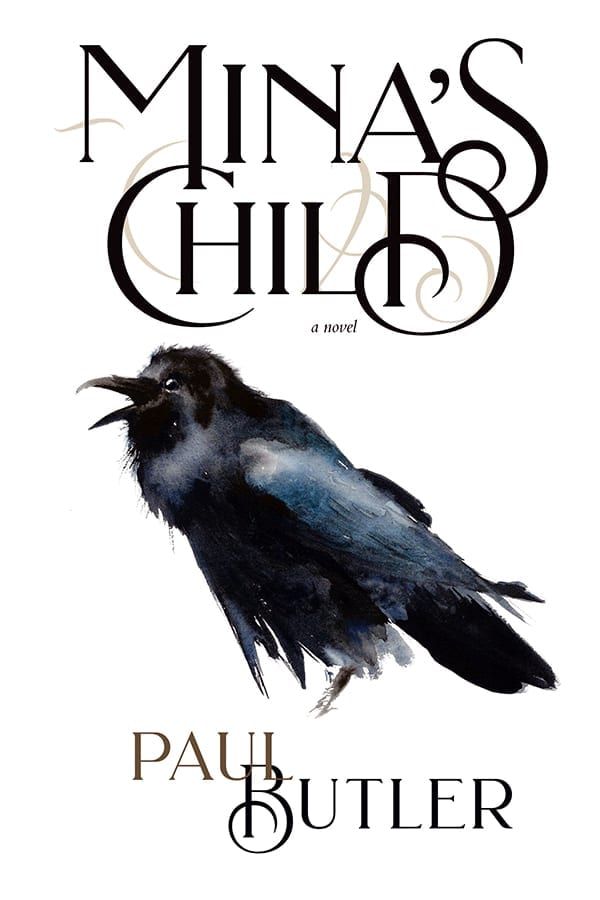

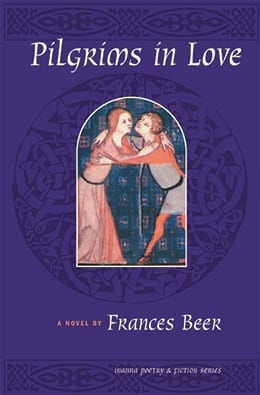
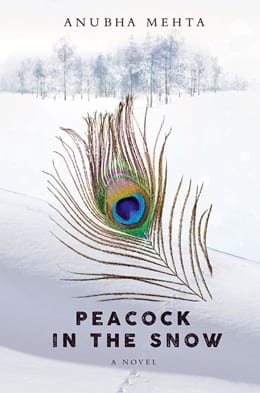
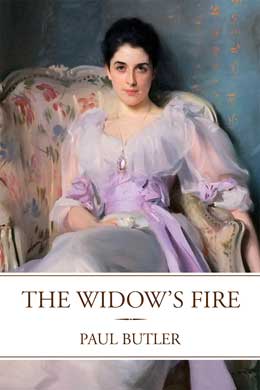
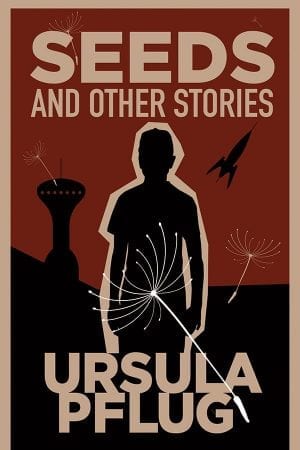
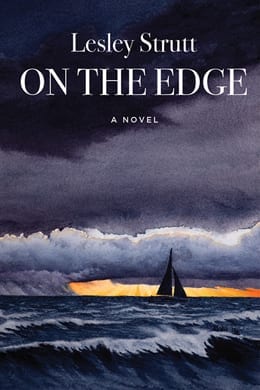
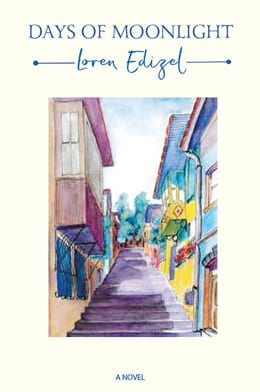
Inanna Admin –
Mina’s Child by Paul Butler
reviewed by Consumed by Ink – August 10, 2020
https://consumedbyink.ca/2020/08/10/minas-child-by-paul-butler-bram-stokers-dracula-30-years-later/
Having loved Paul Butler’s The Widow’s Fire, I jumped at the chance to read his newest despite the fact that it’s a spin-off of Dracula; a book I never thought I’d read. Vampires? Not interested. But I put my prejudices aside and got out my cute little edition of Bram Stoker’s classic (which of course I have even though I didn’t ever think I’d read it. But you never know, right? And here I am…)
Over and over in life I am reminded of this lesson – that I will love just about any book if it’s well-written. Even one about vampires. (Which means that someday I might have to crack open my copy of Frankenstein.)
What a delight Dracula was to read. The structure is brilliant, the characters are hilarious, and the atmosphere is thrilling.
But what does it have to do with Mina’s Child?
Mina’s Child takes place about thirty years (one generation) after the story of Dracula. The child born at the end of Dracula, who brought so much joy, has died in the war. The grief over Quincey’s death and the appearance of a mysterious man (behaving in a creepy manner) has brought up thoughts and questions about the past; the past that Mina has always glamourized to the point of what Abree finds “absurd”. “A secret quest for justice or honour was her parents’ delusion, and they were welcome to it.”
The world has changed rapidly since 1890 – there’s war, there’s industrialization, and there’s a women’s movement. Quincey’s younger sister Abree is trying to breakaway from her parents to navigate this new world. Raised by Victorian parents, Abree lacks confidence in herself; she distrusts “her right to study and argue”.
These were her parents’ generations’s judgments, not hers, and yet they were in her, like tumours.
Jonathan’s grief seems to be undoing him, while Mina and Abree struggle to understand one another.
Jonathan had once believed courage and manly virtue would accrue through his life like interest in a savings bank. But this, his present self, this shameful creature hiding out in his bedroom, seemed to prove the opposite.
Thinking, the way Abree did it, was corrosive. One chose a side, one’s own side–husband, family, children, neighbours–and one defended it. What could be simpler, more straightforward, and, in the end, more morally sound? People win and people lose. This was natural law the world over… There was no such thing as right or wrong. Only children believe in such concepts. There was merely loyalty and disloyalty.
What really happened all those years ago? Why are Abree’s parents so affected by the past? Why did Dr. Seward commit suicide? What ever happened to Dr. Van Helsing? What are the papers Arthur keeps in his safe?
The difference between what is and what should be was the source of all misery and every misunderstanding.
Some good lines…
Refinement demanded an intricate knowledge of all things unrefined.
Time can shed wisdom as easy as gather it.
Sometimes it seemed as though the only unexpected thing about life was its dreadful predictability.
As he did with Persuasion in The Widow’s Fire, Paul Butler shines new light on the story of Dracula, presenting to us a whole new way of looking at it.
I have enjoyed both of these experiences so much, my question for Paul is: Which book will you transform next?
Inanna Admin –
Mina’s Child by Paul Butler
reviewed by Lucy E. M. Black – September 16, 2020
https://bit.ly/37BODHg
Paul Butler is an extraordinarily creative and adept writer. His previous book, The Widow’s Fire, was a masterful prequel to Persuasion by Jane Austen. His use of language, history and character added elements of understanding to Austen’s work that one would not have thought possible.
As a sequel to Dracula, Butler once again works his story magic as he continues the tale that Bram Stoker began. Jonathan Harker, the young solicitor in the original tale, is now much older and is haunted by terrifying nightmares. His daughter, Abree, struggles to understand what it is that torments her father.
At the same time, a mysterious figure begins to stalk her, and Jonathan and his wife, Mina come face to face with their own histories. Butler puts a clever spin on the original tale without comprising the storyline in any way. This is a book that should be read and studied in conjunction with Dracula as a brilliant example of reinterpretation.
Inanna Admin –
Mina’s Child by Paul Butler
reviewed by Typical Books – Horror Fiction – October 2, 2020
https://youtu.be/YPoKGmpbE5o
Mina’s Child by Paul Butler is a Typical Book and it fits right up on the Vampire shelf beside Dracula et al despite not being hard-boiled horror.
This was absolutely enjoyable. Not knowing what to expect, as there are so many vampire stories related to the original Stoker book, this fits alongside Dracula and the Dacre Stoker books as well. While relying less on a supernatural angle and much more on setting and character, this is a new gothic that will please readers of literary fiction, historical, and horror alike.
*Visit Typical Books – Horror Fiction and subscribe at the YouTube link above!
Inanna Admin –
Mina’s Child by Paul Butler
reviewed by Susan McDuffie
Historical Novel Society – November 10, 2020
https://historicalnovelsociety.org/reviews/minas-child/
In 1920, young Abree Harker, a student at King’s College, tries to find her way as a new woman in a new era. Her brother Quincy perished in the Great War. Her parents, Jonathan and Mina, grieve for him but refuse to speak of the dead. The maid Jenny acts strangely, and a mysterious dark-haired man, a foreigner, stands on the street outside, watching the Harker home. Abree has heard vague stories of a journey her parents took some thirty years earlier to the Carpathian Mountains of Eastern Europe and dreams strange dreams of a woman named Lucy. She believes Lucy was once an old friend of her mother’s, but her mother won’t discuss that either. However, the past will not stay buried. It returns to haunt the Harkers, as well as others involved, even as current events spiral madly out of control.
This imaginative sequel to Bram Stoker’s Dracula puts an unforgettable and shocking spin on the original story. Readers will enjoy this book more if they are familiar with Stoker’s original tale. Paul Butler has crafted a remarkable novel, one that imbues the story of the vampire count with new depth and new meaning. Recommended.